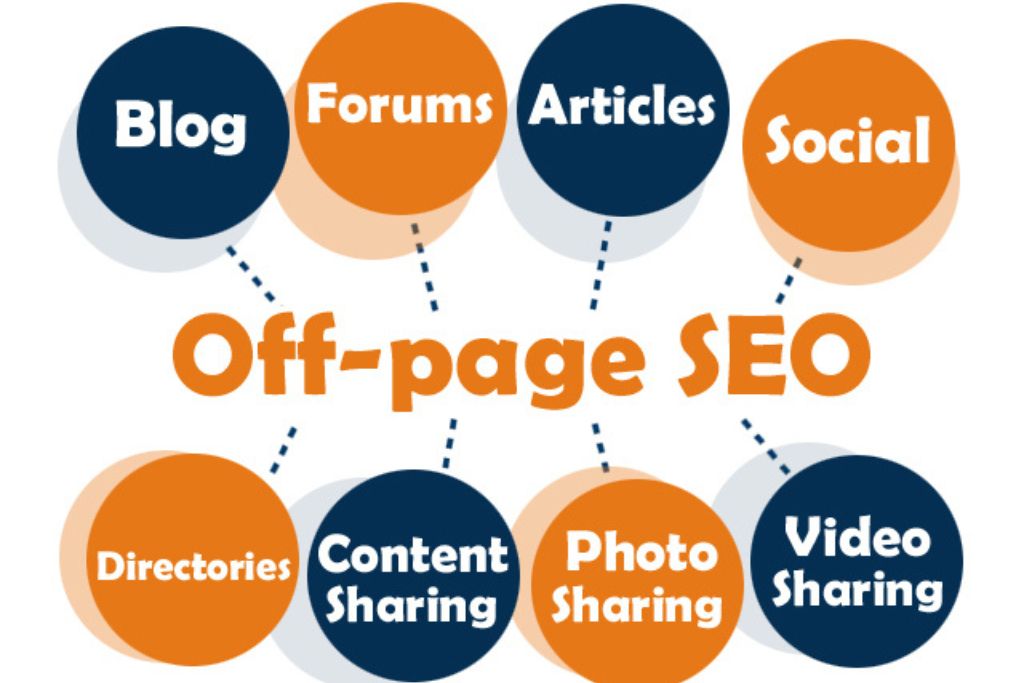Search engine optimization (SEO) is a set of strategies used to increase the visibility of websites and web pages in search engine results. SEO can help boost organic traffic, improve website rankings, and boost brand awareness. SEO involves both on-page and off-page techniques, which must be combined for a successful optimization effort. These techniques are used to make sure that a website is relevant to the search keywords used, as well as to ensure that the content is optimized for user experience. This includes optimizing page titles, meta descriptions, URLs, content, images, and internal linking. Off-page SEO techniques involve building links and getting mentions from social media and other websites.
On-Page SEO Strategies
On-page SEO is one of the most important aspects of SEO, as it greatly impacts the visibility of a website on search engine results pages. On-page SEO techniques involve optimizing elements such as page titles, meta descriptions, and URLs to optimize the user experience and attract more searchers. Additionally, creating quality content and optimizing images can also help improve a website’s search engine rankings.

Optimizing Page Titles
One of the first steps in a successful SEO strategy is optimizing page titles. Good page titles should be unique, accurately describe the content of the page, and include relevant keywords. It is also essential to make sure that titles are not too long, as search engines limit the number of characters.
Optimizing Meta Descriptions
The meta description is an HTML element that provides a brief summary of a page’s content. It appears in the search engine results pages and can help persuade visitors to click on the link. Meta descriptions should be unique and accurately describe the content of the page, while also including relevant keywords.
Optimizing URLs
URLs should be kept short and concise and should include relevant keywords. Pages should also be organized into logical categories and subcategories to help visitors quickly find what they are looking for.

Creating Quality Content
The content of a website should be both relevant and valuable to readers and should include relevant keywords as well. Content should also be well-structured and easy to read.
Image Optimization
Images can improve the look and feel of a page, as well as help attract more visitors, so optimizing images is important. Images should be properly sized, compressed, and named with relevant keywords. Alt tags should also be included to provide a brief description of the image and include relevant keywords.
Internal Linking
It is important to link to related pages within a website as this can help visitors easily find what they are looking for. Internally linking to related content also helps search engine crawlers index a website more quickly.

With the right on-page SEO techniques, websites can become more visible and attractive to both visitors and search engines. Optimizing page titles, meta descriptions, URLs, and images are all important steps in successful on-page SEO. Creating quality content and using internal linking can also help improve a website’s search engine rankings.
Off-Page SEO Strategies
When it comes to search engine optimization, there are two primary strategies: on-page SEO and off-page SEO. Off-page SEO focuses on techniques that are used away from the website in order to help improve the website’s ranking in search engine results.

Link Building Strategies:
One of the most effective off-page SEO techniques is link building, which involves creating links from other websites to your website. These links act as “votes” of confidence in your website’s content and search engines use them to determine the trustworthiness of your website. You can build links to your website through guest posting, directory submissions, social media, blog commenting, and more.
Guest Posting:
Guest posting is one of the most effective link-building techniques. It involves writing content for other websites and linking back to your own website in the process. This is a great way to not only build links but also to get your name out there in the industry.
Social Media:
Social media is also a great way to build links to your website. You can create content and share it with your followers, which can lead to links from other websites. Additionally, you can participate in conversations and engage with influencers in your industry, which can lead to links from their websites.
Brand Mentions:
Brand mentions are another great way to build links to your website. These are mentions of your brand on other websites that don’t necessarily contain a link back to your website. However, they are still valuable because they are seen as a “vote” of confidence in your brand, which can help boost your website’s rankings.
By utilizing these off-page SEO strategies, you can achieve higher search engine rankings and get more visibility for your website. The key is to be consistent and to ensure that you are using quality links. This can take time and effort, but it can pay off in the long run.
Analyzing and Tracking SEO Performance
One of the most important aspects of SEO is analyzing and tracking SEO performance. This will allow businesses to determine whether their efforts are paying off and whether they need to adjust their strategies. With the right metrics in place, businesses can measure the success of their SEO campaigns and identify areas that need improvement.

Identifying SEO Metrics:
The first step in analyzing and tracking SEO performance is identifying the right SEO metrics. These metrics can include keyword rankings, organic search visibility, backlink profiles, organic traffic, page views, and more. By tracking these metrics, businesses can gain a better understanding of how their SEO efforts are performing and can make the necessary adjustments to boost their rankings.
Determining SEO Goals:
After identifying the right SEO metrics, businesses should create a set of goals to strive for. This includes setting monthly and quarterly targets for keyword rankings, organic traffic, and other metrics. Having tangible goals gives businesses something to aim for and can help them stay on track with their SEO campaigns.
Analyzing and Tracking SEO Performance:
Once businesses have identified the right metrics and determined their goals, they can start analyzing their SEO performance. This will involve monitoring their keyword rankings, organic search visibility, backlink profiles, page views, and other metrics to see if their SEO efforts are paying off. If businesses are not seeing the results they expect, they can make adjustments to their SEO campaigns to maximize their return on investment.
Tracking SEO Performance Over Time:
It is also important to track SEO performance over time. This involves looking at data over a period of time to see whether the SEO campaign is showing any improvements. If businesses are not seeing the desired results, they can use the data to identify areas for improvement and make the necessary adjustments.
Analyzing Competitors:
It is also important to analyze competitors to see how their SEO campaigns are performing. This can give businesses valuable insight into their competitors’ strategies and help them develop more effective campaigns of their own.
By analyzing and tracking SEO performance, businesses can gain a better understanding of how their SEO campaigns are performing and make the necessary adjustments to maximize their return on investment. By setting goals, tracking performance over time, and analyzing competitors, businesses can ensure that their SEO campaigns are successful and drive more organic traffic to their websites.
SEO Tips for 2023
Search Engine Optimization (SEO) is an essential part of any successful digital marketing strategy. By optimizing your website for search engine rankings, you can increase organic traffic and visibility. Every SEO strategy should start with proper keyword research and focus on both on-page and off-page optimization techniques.
On-page SEO focuses on optimizing the content and structure of your website, such as optimizing page titles, meta descriptions, and URLs, creating quality content, image optimization, and internal linking. Off-page SEO focuses on building relationships with other websites and boosting your authority in the search engine’s eyes through link-building strategies, guest posting, social media, and brand mentions.

Analyzing and tracking SEO performance is also essential to ensure that your SEO strategies are successful. Identifying SEO metrics such as organic search traffic, number of indexed pages, bounce rate, and click-through rate will help you determine your SEO goals. Once your goals are set, you can then analyze and track your SEO performance to ensure that your strategies are working.
Overall, SEO is a great way to boost visibility and organic traffic for your website. By focusing on keyword research, on-page optimization, off-page optimization, and SEO performance analysis, you can gain a competitive edge in the search engine rankings. With the right SEO strategies, you can dominate the search engine rankings and gain more exposure for your website.
Source: Search Engine Journal
